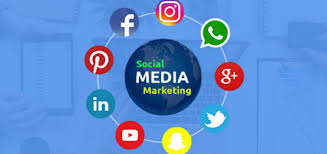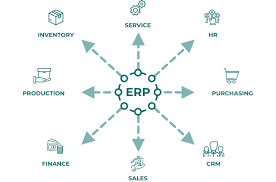In recent years, technology has advanced at a rapid pace, leading to the emergence of new technologies that have the potential to revolutionize the way we live and work. From artificial intelligence (AI) to virtual reality (VR), these emerging technologies are set to shape our future in ways we can only imagine.
AI is one of the most promising emerging technologies. It involves machines that can think, learn and act like humans, enabling them to solve problems and make decisions. AI can be used in a variety of applications such as robotics, image recognition, natural language processing and autonomous vehicles. AI has already been used in healthcare to diagnose diseases and provide personalized treatments. In the future, AI is expected to be used in many more fields such as finance, education and manufacturing.
Another emerging technology is virtual reality (VR). It involves creating an immersive 3D environment where users can interact with objects as if they were real. VR has already been used in gaming, entertainment and training applications. In the near future, VR is expected to be used for medical purposes such as surgical simulations and physical therapy exercises.
Augmented reality (AR) is also an emerging technology that overlays digital information on top of real-world environments. AR has already been used for navigation purposes such as Google Maps and Apple Maps. In the near future, it is expected to be used for training purposes such as engineering simulations or military operations training.
The Internet of Things (IoT) is another emerging technology that connects devices via sensors or networks so they can communicate with each other without human intervention. IoT has already been used in smart homes where appliances are connected via sensors or networks so they can respond automatically when a user interacts with them. In the near future, IoT is expected to be used for industrial automation and predictive maintenance applications where machines will be able to detect faults before they occur.
These are just some of the many emerging technologies that are set to shape our future in exciting ways. By leveraging these technologies, businesses will be able to create innovative products and services that will improve our lives in ways we never thought possible before!
What are the 5 most commonly asked questions about emerging technologies?
- What are the most promising emerging technologies?
- How will emerging technologies affect our lives?
- What are the potential risks associated with emerging technologies?
- What is the impact of emerging technologies on society and the economy?
- How can we best prepare for and manage the introduction of new technologies into our lives?
What are the most promising emerging technologies?
- Artificial Intelligence (AI)
- Internet of Things (IoT)
- Augmented Reality (AR)
- Blockchain
- Autonomous Vehicles
- 5G Network Technology
- Quantum Computing
- Natural Language Processing (NLP)
- Biometrics
- Virtual Reality (VR)
How will emerging technologies affect our lives?
Emerging technologies are likely to have a huge impact on our lives, from how we communicate and interact with each other, to how we work and travel. For example, the development of artificial intelligence (AI) and machine learning will allow computers to learn from data and make decisions without human input. This could lead to more efficient services, improved healthcare delivery, better customer service, and more accurate predictions of consumer behavior. Autonomous vehicles could also revolutionize transportation by reducing traffic congestion and improving safety. Advances in robotics could also lead to more efficient manufacturing processes and improved automation of many mundane tasks. Finally, the increasing prevalence of the Internet of Things (IoT) will enable us to control our environment with greater ease than ever before.
What are the potential risks associated with emerging technologies?
- Security Risks: Emerging technologies can introduce security risks if not properly secured, as hackers and cybercriminals may find ways to exploit vulnerabilities in the new technology.
- Privacy Risks: As new technologies collect and store data, they can also create privacy risks if that data is not properly protected or used for malicious purposes.
- Regulatory Risks: New technologies may require changes to existing regulations or the introduction of new ones, which could cause delays or other legal complications in their implementation.
- Economic Risks: The adoption of new technologies can lead to economic disruption, as businesses must adjust to changes in the market or face potential losses due to decreased demand for their products or services.
What is the impact of emerging technologies on society and the economy?
The impact of emerging technologies on society and the economy is immense. Emerging technologies have the potential to revolutionize the way we live, work, and interact with each other. They can create new opportunities for businesses, reduce costs, improve efficiency, and create new markets. They are also changing the way we consume media, communicate with each other, and access information.
At the same time, emerging technologies can also present some risks to society and the economy. For example, they can disrupt existing industries or lead to job losses due to automation or outsourcing. They can also lead to privacy concerns as data becomes more widely available and vulnerable to exploitation.
In order for emerging technologies to have a positive impact on society and the economy, it is important that they be developed responsibly with consideration for their potential risks as well as their potential benefits. Companies should take steps to ensure that their technology is secure and privacy-respecting, while governments should ensure that regulations are in place that protect citizens from potential harms while still allowing innovation to flourish.
How can we best prepare for and manage the introduction of new technologies into our lives?
- Educate yourself about the new technology: Take the time to research and understand the new technology and its potential uses. Ask questions, read articles, watch videos, and attend seminars or workshops.
- Set realistic expectations: Understand that new technologies may not always be as successful as you expect them to be. Be prepared for potential challenges or failures along the way.
- Plan ahead: Create a plan for how you will use the new technology in your life and how it will fit into your existing routine. Consider how you will manage security, privacy, and other potential risks associated with using the technology.
- Establish a support network: Reach out to experts or peers who can help you with any issues that arise when using the new technology. Consider joining online communities or forums dedicated to discussing the technology or reaching out to people who have already implemented it in their lives.
- Monitor usage: Pay attention to how you are using the new technology and monitor for any changes in behaviour or performance that may indicate a problem with its use or implementation.




